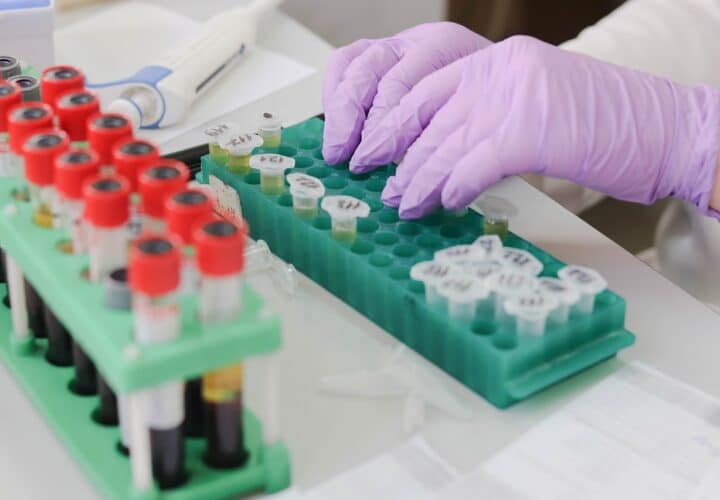Researchers have identified a gene called Presenilin1, or PSEN1, as a potential new biomarker for Alzheimer’s disease. In mice and human samples, the researchers found in a new study that DNA activity changes in the PSEN1 gene are associated with Alzheimer’s.
The international research team tracked patterns of DNA modification that interfere with PSEN1 gene expression in mice, both during brain development as well as Alzheimer’s progression. They did the same in human samples, using brain tissue obtained from Alzheimer’s patients after death as well as from babies and adolescents.
The researchers then honed in one something called DNA methylation, a biological process that can change the activity of DNA without altering its expression. Using blood samples from 20 patients with late onset Alzheimer’s, and 20 healthy controls, the researchers found that people with Alzheimer’s were more likely to have PSEN1-related DNA methylation, or changes in gene activity.
Being able to identify this potential biomarker in the blood may offer a faster and less invasive way to diagnose Alzheimer’s earlier, the researchers argued.
The results show “an exciting new area of investigation,” Andrea Fuso, a professor at the Sapienza University of Rome and an author of the study, said in a news release.
“We’ve detected an early sign of the disease in a DNA modification, or epigenetic marker, that was previously overlooked, and that could even provide a starting point for developing new therapies, as well as earlier diagnosis,” Fuso continued.
PSEN1 has been linked to Alzheimer’s disease for a while. According to the National Institutes of Health (NIH), scientists have pinpointed over 150 PSEN1 gene mutations that are linked to early onset Alzheimer’s, a form of the disease that appears in people as early as their 50s and 60s.
PSEN1 mutations are considered one of the most common causes of early onset Alzheimer’s. Nearly 70 percent of cases are linked to these mutations, which appear to trigger over-production of beta-amyloid protein in the brain.
But the PSEN1 gene isn’t the only biomarker associated with Alzheimer’s that can be detected in blood samples. Scientists have been exploring this area of research — known as epigenetics — to find out how changes in gene expression can define the development of the disease.




